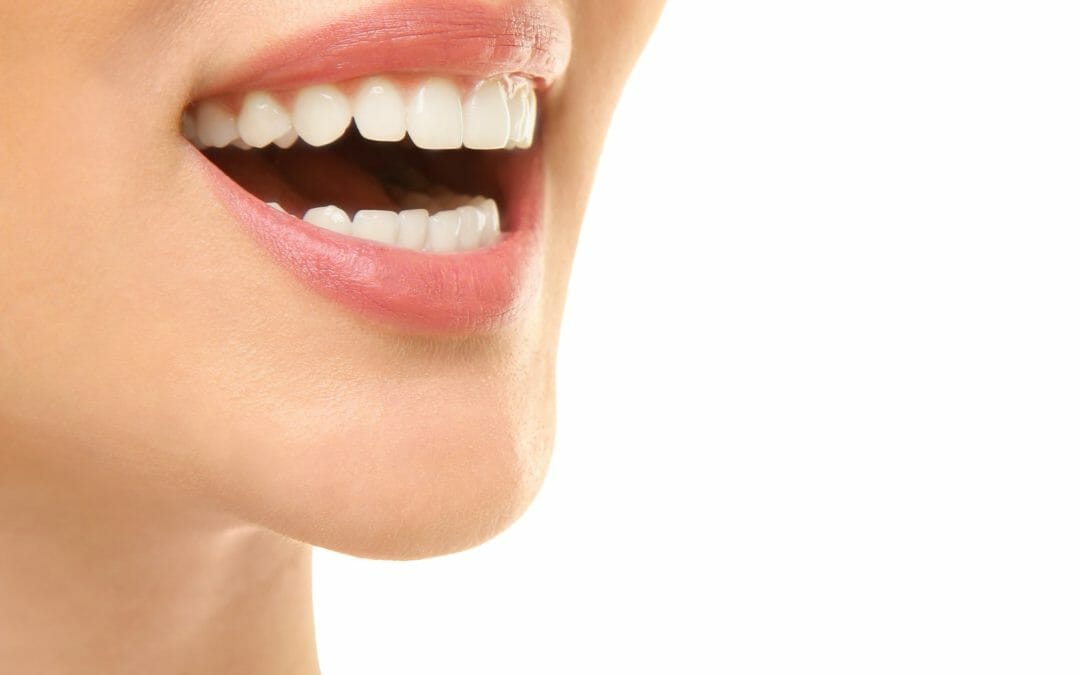Dental bonding is a popular and simple treatment that can be done right here in our office. It offers a variety of benefits and advantages to patients, and that’s why we often recommend it as an alternative to more invasive treatment options.
What Is Dental Bonding?
Dental bonding is a dental material made from composite resin. It can be applied to a patient’s tooth, sculpted, molded, smoothed, and hardened on the spot with a special curing light.
5 Benefits of Dental Bonding
1. It Offers Cosmetic Benefits to Improve the Look of Your Smile
Dental bonding has several treatment applications in cosmetic dentistry. This highly versatile material can be used to mask stubborn stains and tooth discoloration that can’t be removed with professional whitening treatments. It can also be used to correct the shape or appearance of a misshapen tooth. It can be used to fill in tooth gaps and to improve the symmetry and balance of a person’s smile.
2. It Offers Restorative Benefits to Improve the Health of Your Smile
Dental bonding is also a protective, strong material that can be used to restore and improve the health of a patient’s smile. Dental bonding can be used to fill cavities, seal cracks in a tooth, and repair chipped or broken teeth. It can also be used to cover the sensitive layer of dentin that can sometimes become exposed along a patient’s gum line as a result of gum recession. It can be layered over areas where a person’s tooth enamel has become soft to prevent further decay.
3. It’s a Non-Invasive Treatment
One of the biggest benefits of dental bonding is that it’s a non-invasive treatment. Alternative cosmetic and restorative treatments like dental veneers and dental crowns require a person’s tooth enamel to be shaven down to accommodate the veneers or the crown. Dental bonding simply adheres to the natural surface of a patient’s tooth, making it a non-invasive and non-permanent treatment option.
4. Total Treatment Time With Dental Bonding Is Minimal
The dental bonding treatment process is quite quick. The bonding material is applied, shaped, sculpted, and set by our skilled dentist all during a single appointment.
Other cosmetic treatments require a longer process that involves preparing the patient’s teeth to receive a dental restoration (shaving down the tooth enamel), taking digital scans or impressions of a patient’s mouth, designing a patient’s prosthetic dental restorations (veneers, crowns, etc.), and waiting for the dental prosthetic to be manufactured before the treatment can be permanently placed.
5. It Doesn’t Damage Your Tooth Enamel
Since dental bonding adheres to the surface of a patient’s teeth, it won’t damage the tooth enamel. Other treatments, like dental veneers and crowns, are permanent because they require the patient’s natural teeth to be significantly altered before they can be placed.
As a result, cosmetic treatments with dental bonding are not permanent. So, if you have a tooth gap filled with dental bonding, and decide you prefer your smile in its original form, you can go back to your natural look if you prefer.
What Is the Dental Bonding Process?
The dental bonding process is quick and simple, and it typically takes place in just one appointment. The treatment process begins with a consultation when our dentist talks with you about your treatment goals and expectations. We then select and dye a composite resin material to match your surrounding teeth. We then thoroughly clean the treatment area.
Depending on the type of dental bonding treatment, we might slightly score your tooth enamel to improve the bond that’s achieved between the composite resin and the surface of your tooth. We then apply the dental bonding to the treatment area and sculpt it until the desired look is achieved. A special ultraviolet curing light is then applied to the dental bonding to cure and harden it.
After the material is properly cured, the treatment is complete and the patient can return to their normal daily activities.
Is Dental Bonding Right for You?
Dental bonding is a great, cost-effective, non-invasive treatment choice designed to address a variety of cosmetic and restorative oral health concerns. Our dentist can talk with you about your treatment goals, preferences, and budget to help you determine whether or not dental bonding is the right treatment choice for you.
Dental Bonding at Dentistry of West Bend
At Dentistry of West Bend, we provide our patients with comprehensive cosmetic and restorative dentistry treatments. In addition to dental bonding, our patients can benefit from dental caps or crowns, dental implants, bridges, professional teeth whitening, dental veneers, and more. To learn more about these treatments and how we can best help you achieve your oral health and smile goals, we encourage you to contact our office to schedule an appointment with Dr. Jared Harding.


Recent Comments